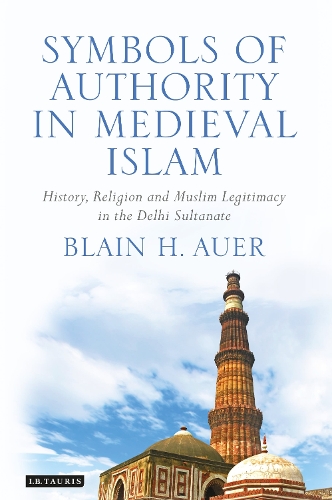
Symbols of Authority in Medieval Islam: History, Religion and Muslim Legitimacy in the Delhi Sultanate
(Hardback)
Publishing Details
Symbols of Authority in Medieval Islam: History, Religion and Muslim Legitimacy in the Delhi Sultanate
By (Author) Blain H. Auer
Bloomsbury Publishing PLC
I.B. Tauris
30th June 2012
United Kingdom
Classifications
Tertiary Education
Non Fiction
Social groups: religious groups and communities
Islam
954.023
Physical Properties
Hardback
264
Width 218mm, Height 144mm, Spine 26mm
460g
Description
With the execution of the Abbasid caliph in Al-Musta'sim in 1258, Sunni authority and legitimacy in Baghdad began to disintegrate, and the recently established Delhi Sultanate became a new focus for the development of Muslim societies amidst a global shift in Islamic authority. Here Blain Auer investigates the ways three historians living in India during the thirteenth and fourteenth centuries, Minhaj Siraj Juzjani, Ziya' al-Din Barani and al-Din Siraj 'Afif, narrated the religious values of Muslim sovereigns through the process of history writing. Aiding the project of empire building, these historians and intellectuals drew up an idea of an Islamic heritage that invented and reinterpreted conceptions of a historically rooted Muslim authority. With fresh insights on the intersections between religion, politics and historiography, this book will be indispensable for all those interested in Islamic studies, history, religion, politics and South Asia.
Reviews
'Blain Auer's book brings a refreshing new approach to the sources of Sultanate history.' Daud Ali, Associate Professor and Chair of South Asia Studies, University of Pennsylvania. 'An outstanding contribution, skillfully utilizing intellectual frameworks from religious studies, history and area studies, that explores the array of Islamic values that legitimize constructions of religious and political authority in Muslim South Asia.' Ali Asani, Professor of Indo-Muslim and Islamic Religion and Cultures and Director of the Prince Alwaleed bin Talal Islamic Studies Program, Harvard University. 'This elegantly written book offers a nuanced and innovative reading of Delhi Sultanate historiography, moving beyond earlier approaches to the material by analyzing the discursive formations of royal power and legitimacy. Auer provides a masterful analysis of various narratological devices deployed in the Persian historical sources of the period that promote the religious and political authority of the Delhi sultans. This includes a rich examination of the patterns of sacred authority found in the lives of the prophets, the memorialization of Sufi saints, as well as in architectural, codicological and numismatic displays of power. Auer sheds light on how the rulers of the Delhi Sultanate ideologically grafted themselves into the larger arc of Islamic salvation history and does an excellent job situating this important period within the scholarly field of Islamic studies.' Travis Zadeh, Assistant Professor of Religion, Haverford College, Philadelphia.
Author Bio
Blain H. Auer is Assistant Professor of Islamic Studies at Western Michigan University, Michigan. He specializes in Islam in the context of premodern South Asia. In particular, he studies the representations of Islamic authority exhibited through the use of the Qur'an, Hadith, exegesis and history writing produced during the Delhi Sultanate. A second area of research focuses on modern ritual, pilgrimage and relics connected with the burial places of the special dead in Islam.
